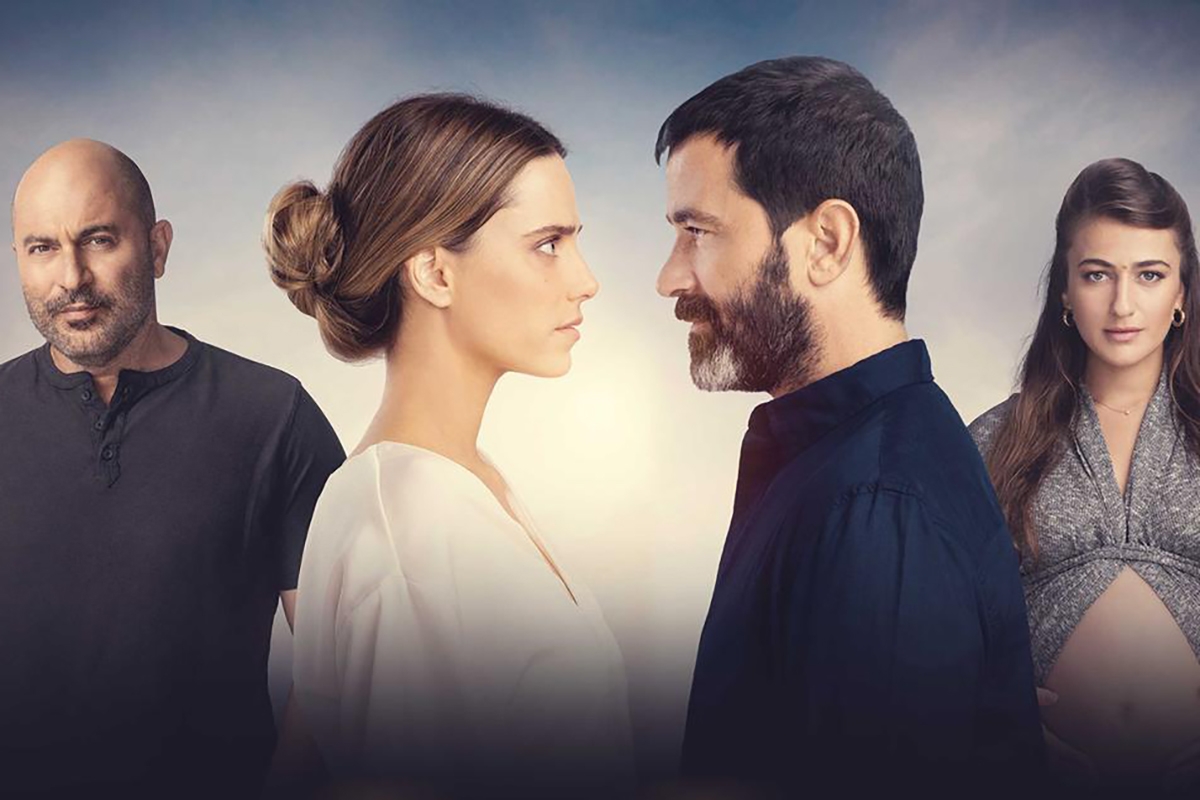For those who want it, bringing a child into this world is perhaps the most tense, dramatic and profound experience of our lifetime. The tears, the fears and the exultations of pregnancy and birth — and of those first months of parenthood— bowled me over in a way that I didn’t even know was possible. And yet for something that has so much power and potential, there have been few TV shows that really harness and center the drama of that process in the service of good storytelling. I’ve certainly never seen a show that does it as well as the surrogacy drama “A Body That Works.”
“A Body That Works,” whose first season aired in Israel back in early 2023, made it to the top 10 most streamed shows on Netflix worldwide last month, and for good reason. The show, which landed on the streamer this summer, features the creme de la creme of Israeli actors, including “Fauda” star Lior Raz, and is directed and co-created by Shai Capon (cousin of actor Tomer Capon), a man behind some of the best shows in the history of Israeli television. Its co-creators, Shira Hadad and Dror Mishali, are both literary prodigies who have worked with the likes of Sayed Kashua and Amos Oz, and have collaborated on a couple of international TV projects. And yet it is not just excellent Israeli TV — it’s one of the best shows on Netflix right now, period.
The Hebrew name of the show is “Guf Shlishi,” meaning “Third Person,” which is apt for the story of three people. There’s Elie, a successful and perennially busy book editor played by Rotem Sela (“The Beauty and the Baker”) who has struggled with years of infertility treatments. There’s her husband, Ido, an idealistic lawyer played by Israeli heartthrob Yehuda Levy (“Firedance”), who wants a baby just as badly as Elie does. And there’s Chen (Gal Malka, “Dismissed”), a single mother of one who struggles to keep a job and to create stability for her son, and who finds a way to create some financial security by enlisting to be the couple’s surrogate.
Everyone has to make sacrifices for this fragile triangle to hold up. Ido closes his own independent firm and joins his dad’s bigger practice to pay for the procedure. Chen has to give up her body and comfort, and has to let these two people into her life. And Elie, who has undergone countless fertility treatments, has to let go of that lifelong dream of being pregnant and giving birth, and perhaps just as painfully, of the kind of control that she thought she could excise over the process.
These dynamics are held together by a thread, and the triangle ends up collapsing on itself. When we first meet Ido and Elie, their relationship is mostly focused on their joint dream of parenthood. When Chen gets pregnant, they have very different approaches towards her. Elie wants to control as much of Chen’s life as she can. She struggles when Chen doesn’t agree to her suggestions of a special diet and supplements, when she sees her holding her cellphone to her stomach, and maybe most fundamentally, when she sees her able to keep her embryo thriving in her rounding belly. Ido, on the other hand, overwhelmed by gratitude, wants to keep the peace. He ends up managing the relationship with Chen, connecting with her easy and humorous demeanor while his own relationship crumbles.
It gets even more complicated when that triangle turns into a square as Tomer, a successful international star who is working on his autobiography, enters the picture. Tomer, who is played by Raz, is paired with Elie as his editor, and their relationship is fiery from the start. Elie manages to unearth feelings and truth in Tomer that he has never revealed before, and Tomer makes Elie feel like she is not just an overbearing person with a body that doesn’t work but beautiful and desirable — someone whose words and work are worthy of gravity and space. The two quickly fall under each other’s spell.
This show is written by professional writers and editors, and maybe that’s why its text feels so naturalistic. The dialogue will feel eerily familiar for anyone who has struggled with infertility and pregnancy. And each character gets their rightful amount of screen time and backstory. As a result, we feel deeply for each and every one of these four individuals — but not just them. There is a whole constellation of well-drawn people who make up their world, including Elie’s mother (played by the incredible Nurit Galron), Chen’s contentious ex-husband and distant father, Ido’s overbearing and controlling parents, and sweet, sweet Uri, Chen’s 10-year-old son, who both tries to protect his mother and just be a kid, and who is at the center of some of the show’s most heartbreaking scenes. It is Uri who serves as a reminder that what Elie and Ido are working for is just the beginning of so much more heartbreak and complication, but also of eternal love.
Surrogacy is a complicated subject, an industry that often preys on certain power imbalances in the world, especially when we talk about surrogacy abroad. That imbalance certainly exists between Chen, who lives at her dad’s house, and Ido and Elie, who live in a gorgeous apartment and have stable, well-paying jobs. In a particularly poignant scene, Elie tells Chen that what they are is “an incubator and an ATM.” And yet the show offers a complex and nuanced portrayal of that dynamic. Chen feels oppressed by Elie’s demands and the perfect image she projects — a powerful career woman who can cook and keep house. Elie can barely contain the seething jealousy she feels at the ease with which Chen gets pregnant. They both know how to say the things that hit each other in their tender spots. And they’re intimately connected by not just this baby, but as women who feel that there is something missing in them and who are, in their own ways, fiercely independent, opinionated and strong. They’re two sides of the same coin, and it’s no surprise that both Sela and Malka won Best Actress awards at the French TV festival Series Mania for their roles in this show.
“A Body That Works” could be triggering for those who’ve struggled with infertility, but also incredibly validating. And truly, this show is about so much more. It’s about the experience of parenthood, about the burdens we carry from our parents and how we can let them go, about the sacrifices that we make for our children, and the insecurities we have, whether we’ve paid thousands of dollars for surrogacy or gotten pregnant in one try. It’s about how capable we are to bring children into the world and give them the experience they deserve. It’s also a show about being human, about how we don’t stop messing things up and figuring them out once we have kids — and maybe that’s what makes it one of the most beautiful and affirming shows I’ve seen as a parent.








